Gadia Lohars in Datia want stability
Gadia Lohars, a nomadic community of Rajasthan, has been living in Datia, Madhya Pradesh for decades now but is unable to avail the benefits of various government schemes.
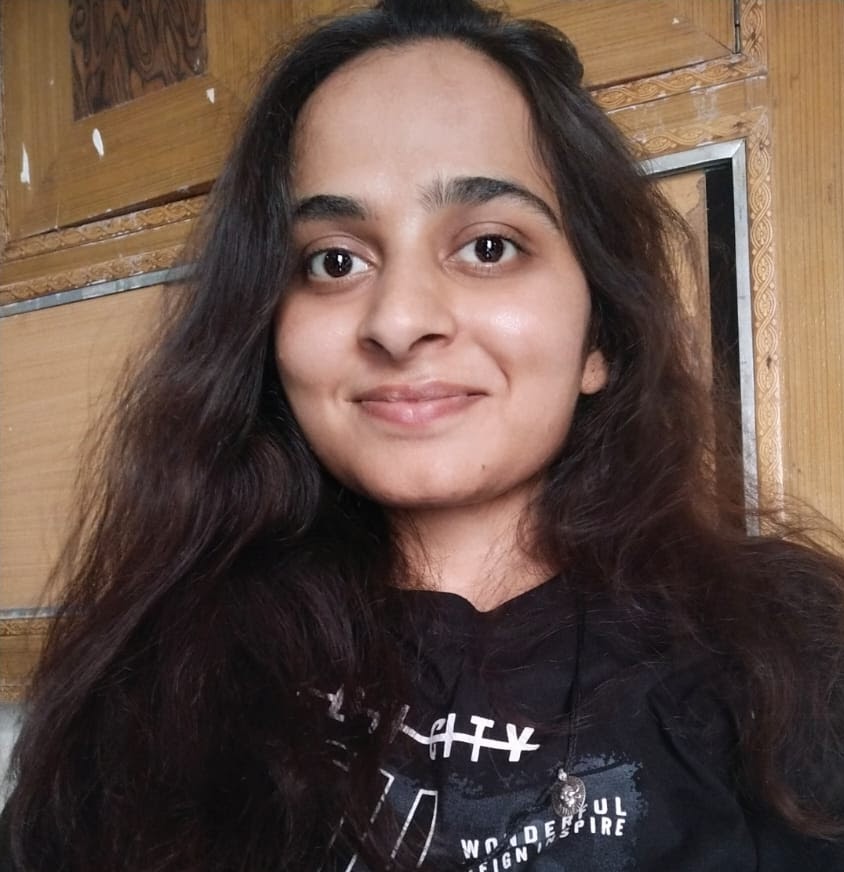
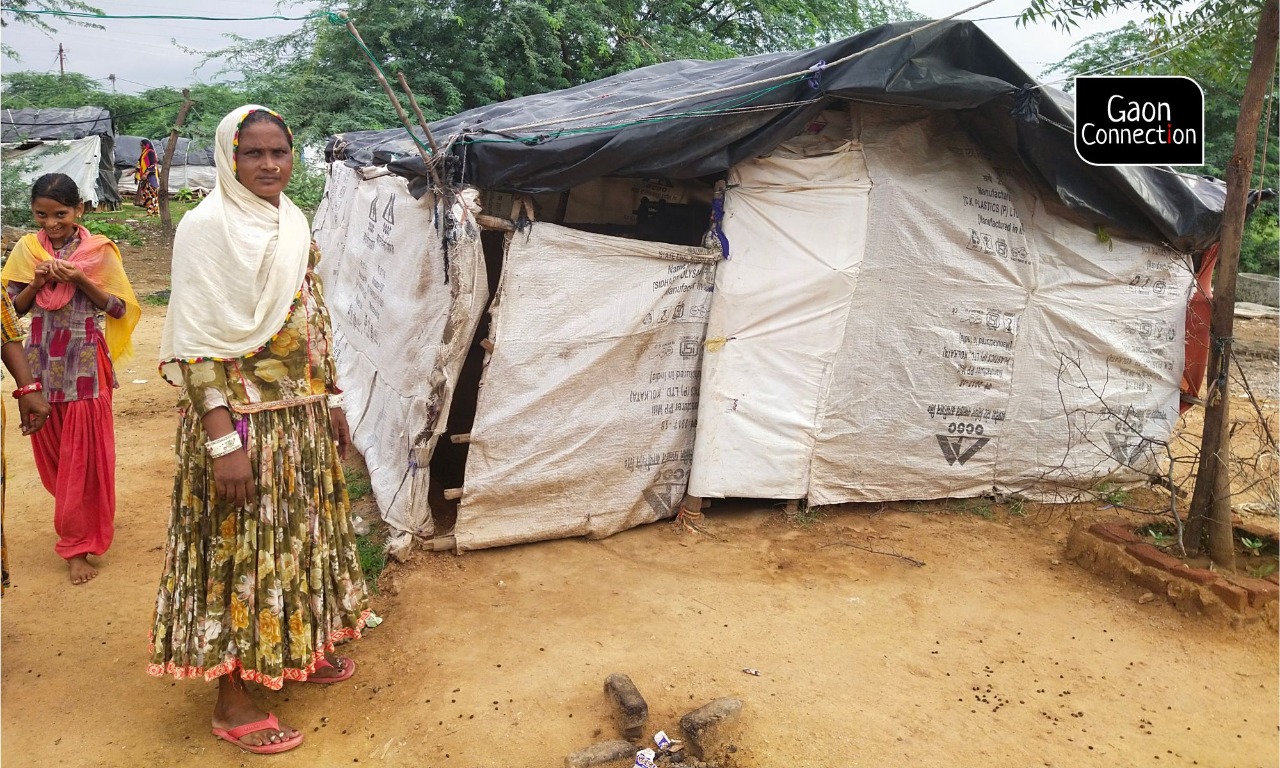
A woman in her traditional attire standing near her hut. Photo: Pratishtha Sharma.
Have you ever passed by a roadside thatched hut, with a blackened old wooden cart parked nearby, and maybe seen women selling iron woks of varying sizes and tongs and wondered who they were?
They are the Gadia Lohars. A nomadic community of lohars (ironsmith).
Gadia Lohars have their origin in Rajasthan whose ancestors, according to them, worked as blacksmiths in the army of Rajput King Maharana Pratap. After the Mughals captured Mewar in the 17th century, the blacksmith community apparently vowed not to return, not to own a house and not to light a lamp till the rule of the king was restored.
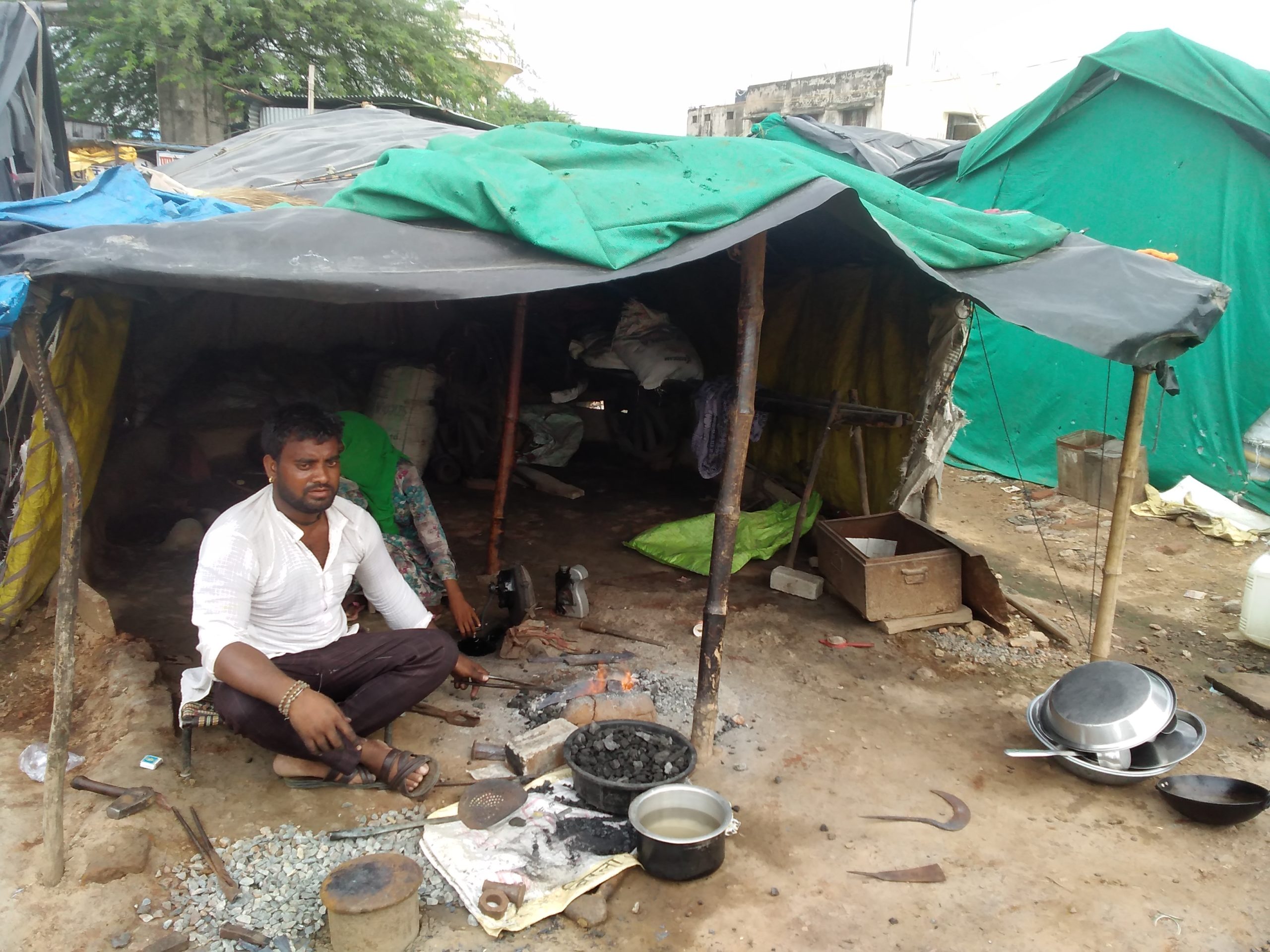
However, centuries later now, most members of this community still adhere to the vow made by their ancestors and lead a life of a nomad. Though many of them live in one city, they don’t own a house.
Over a period of time members of this community have migrated out of Rajasthan and reached other states. Over 800-1,000 members of this community are living on the roadside in Datia district of Madhya Pradesh for the last few generations. Their huts all have thatched roofs covered with black plastic sheets. A cart too is parked nearby. They remain marginalised and various government schemes do not reach them.
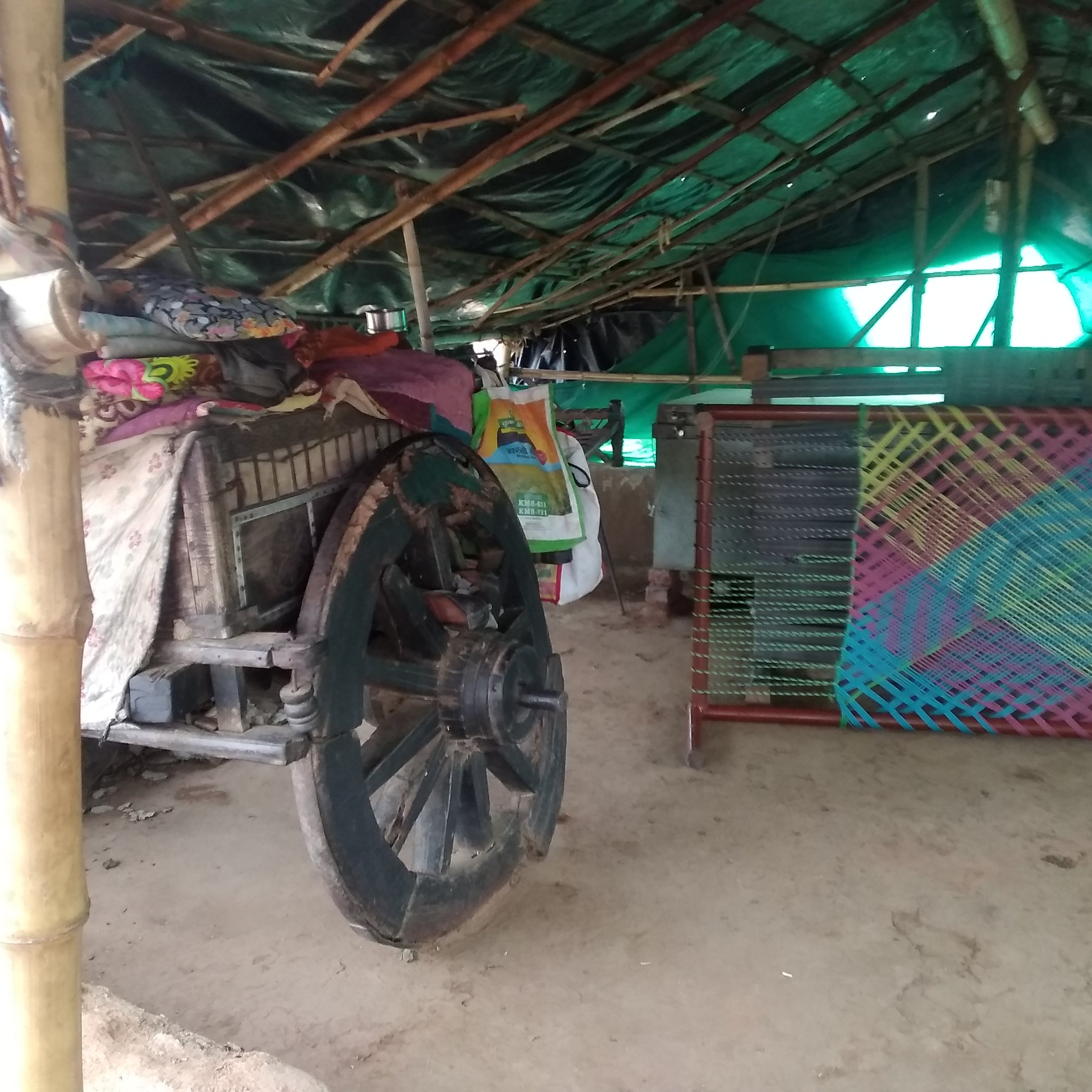
These lohars are still involved in iron beating and making of griddle, woks, sickle and every member is prepared to continue this work.
“We have no stability in our life though we have lived in this city for generations. There is still a fear of being shifted from one place to another, we want our own house with toilets, water connection and electricity so that we can live a life where we don’t feel alienated in our own place,” Ganga, a middle aged Gadia Lohar woman, told Gaon Connection. “Living on the roadside is dangerous for our children and women,” added another lohar.
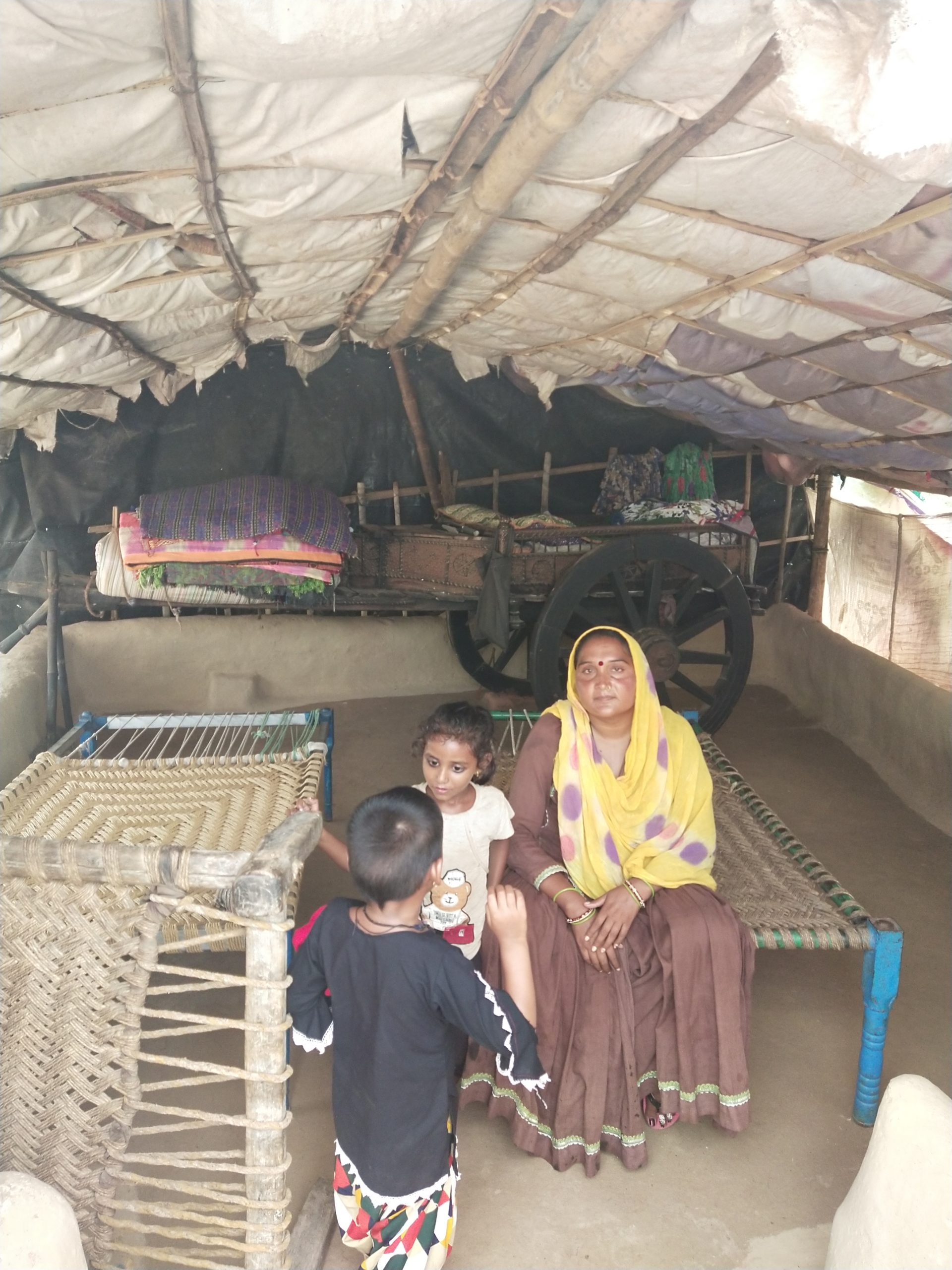
The Gadia Lohar community of Datia has tried to avail benefits of some of the government schemes and filled out numerous forms and paid money to brokers, but without any luck.
“We have asked for the benefits in the Pradhan Mantri Ujjwala Yojana but have not got any gas connection,”complained a Gadia Lohar woman.
It has been four years since the Pradhan Mantri Awas Yojana-URBAN was launched but many Gadia Lohars in Datia have been unable to get land allotted in their names. They were told that the list for allotment of land was given to the tehsildar office and a decision was taken only after certain formalities were done. Many were not aware of schemes like PM Kaushal Vikas Yojana,
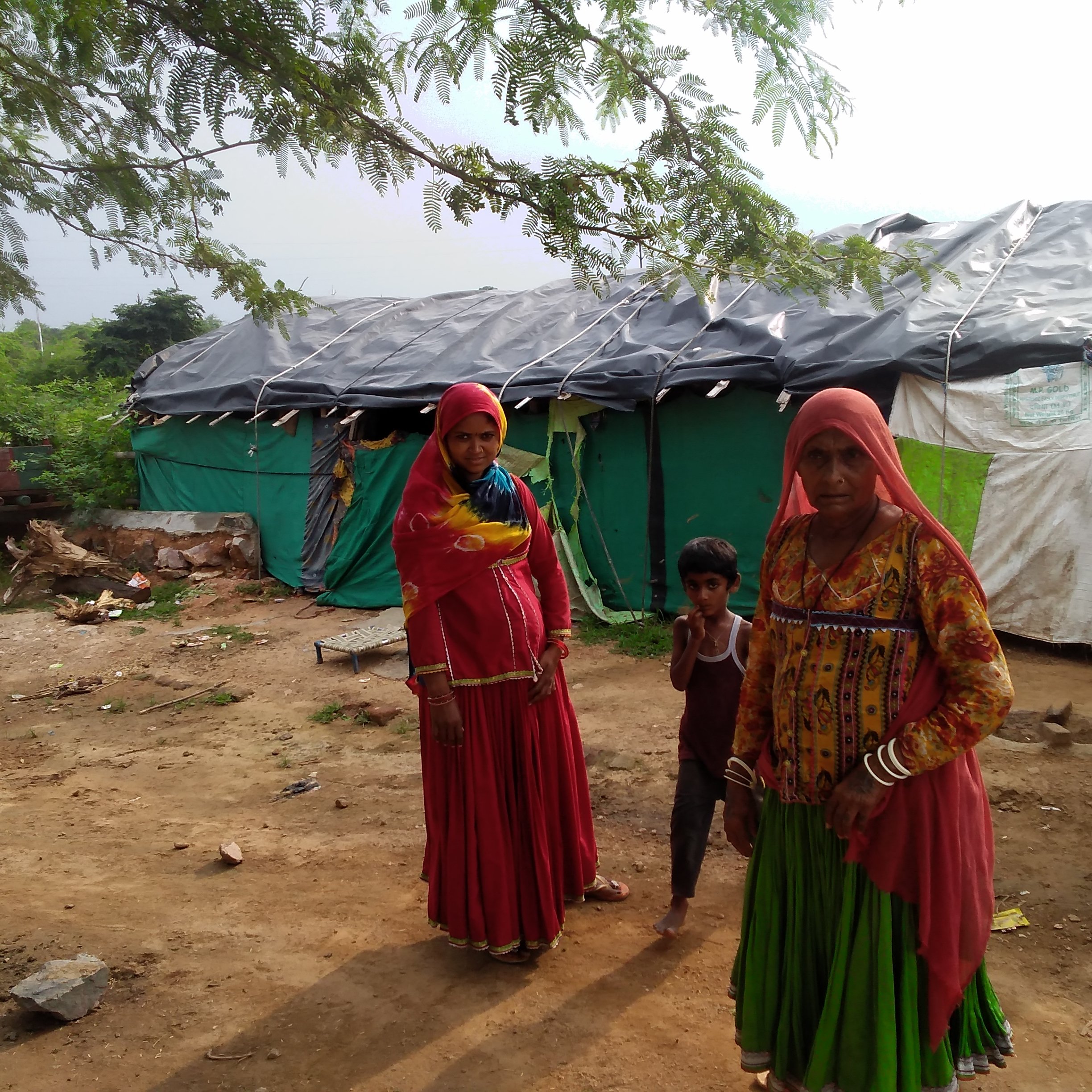
A skill development initiative scheme for the recognition and standardisation of skills. Some do get foodgrains available under the National Food Security Act, 2013, but complained that it was not enough due to the large size of their family.
The Nagar Palika constructed around 10-15 toilets for the Gadia Lohar community in the area covering 50 huts under the Swachh Bharat Mission. However, these are not in use as the pit was not constructed and the hand pump for water broke and was not repaired. They now walk a kilometre for water needs.
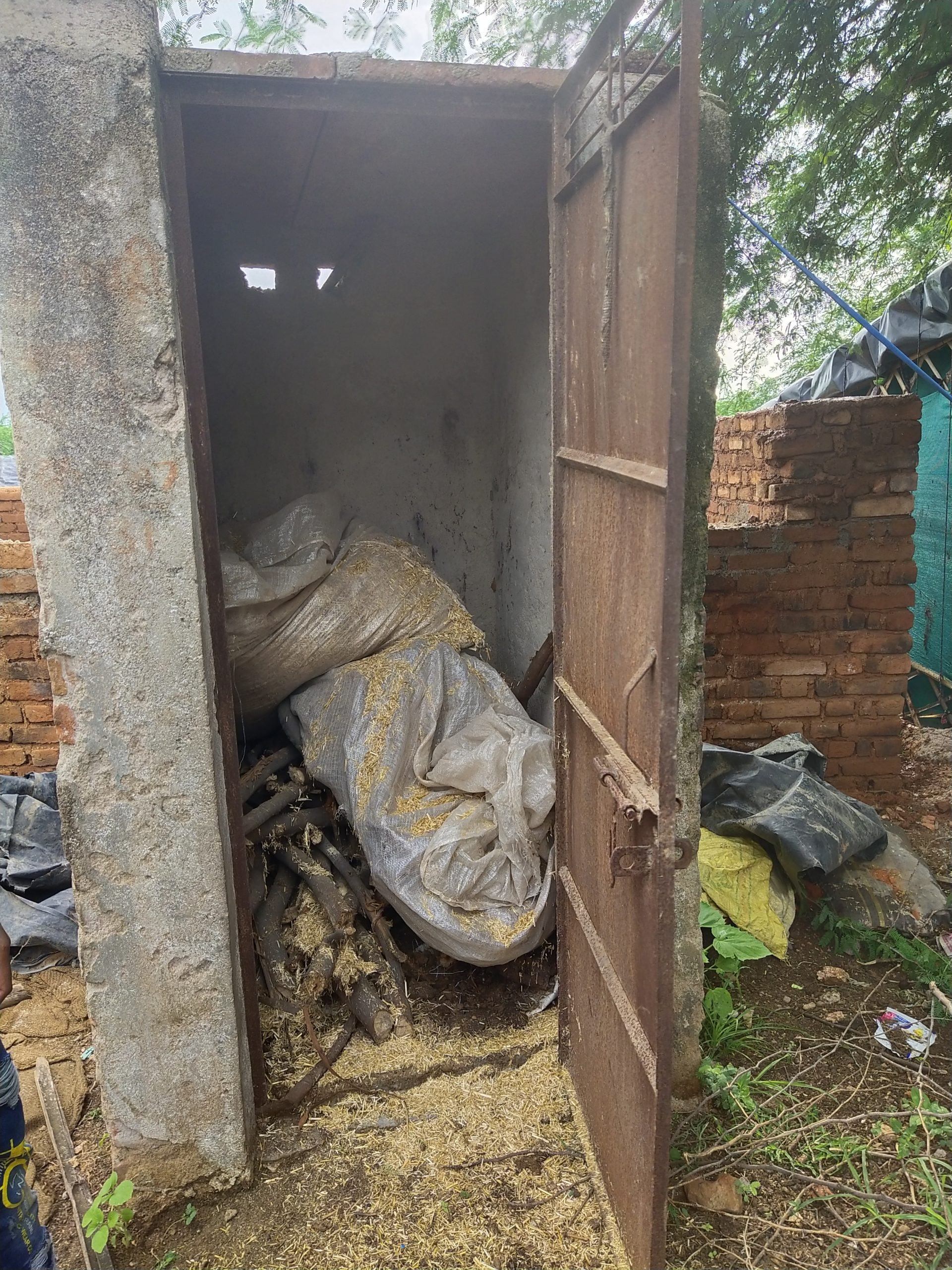
Many of the teenagers and youth are illiterate. Some who used to go to school now feel that online learning is a distant dream for them.
The community members complained they have been unable to access loans from the government banks to start a business. “I have applied for a loan for Rs 10,000 under Aatma Nirbhar Nidhi for working capital, which is being provided to street vendors to restart work but I am still to get it,” a young member of the community said.
The coronavirus disease (COVID-19) and the lockdown has hit this community too. “We used to earn Rs 150-Rs 200 per day before the lockdown but now even earning half of that amount is difficult,” said a community member. “We know we have a different culture, which is our identity.” “For decades we have been living in a different way but I was born here, my mother was born here, it is our home,” Arti, a young girl told Gaon Connection adding that they too deserve a “normal life” like others.”
Even though the members of Gadia Lohar community of Datia have Aadhaar cards, ration cards or voter cards, a greater push is required from all governmental and non-governmental organisations to integrate the community into the society yet ensuring that their uniqueness and culture is preserved.

